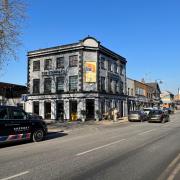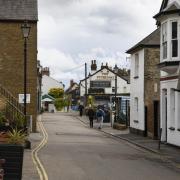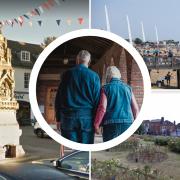As director of nursing and quality at Princess Alexandra Hospital in Harlow, Dr Nancy Fontaine is passionate about making the hospital’s services as patient-friendly as possible. ‘I am very clear with staff,’ Dr Fontaine explains, ‘the most important person is the patient and that is why we are all – porters, receptionists, doctors, nurses, consultants and every other member of staff – investing time and energy listening to how patients and their loved ones feel about their experience when they come to Princess Alexandra Hospital.’
But as well as chatting on the wards and keeping an ear out for the grumbles of patients and their visitors, every other month around 30 people are invited back to the hospital specifically to give a frank account of their recent stay and to explain to staff what they feel could be done better. The results of these In Your Shoes sessions have already prompted some changes at the hospital, from the minor to the very major.
‘Coming to hospital can be a worrying time,’ says Princess Alexandra’s Karl Heidel, ‘so our aim is to try to make a patient’s stay as pleasant as we can.’
Certainly, little things can make a big difference, as anyone who has ever spent time in a hospital or visiting will agree. When people taking part in the In Your Shoes panel said they were anxious about where they could park at the hospital and how much it would cost, the hospital quickly rewrote its information on parking to make it more straightforward and made sure it was available throughout the hospital to put minds at rest.
Another concern was that hospital visitors should be able to get something to eat and drink if they were to be at a patient’s bedside for any length of time – the hospital is now looking into providing tea and coffee for relatives and friends and possibly even a meal or a sandwich for anyone who accompanies a patient for longer periods.
Listening to the public is clearly paying off – Princess Alexandra is now one of the top three hospitals in the region for patient experience, according to the Health Service’s Friends and Family Test, which asks patients whether they would recommend the care they received at the hospital to their friends and family.
In fact, recent patient, Dennis Boyle from Harlow, has commented to Essex Life: ‘The staff at Princess Alexandra have been fantastic in helping me recover from a major operation. I cannot thank them enough.’
Of course, it is not at all easy to keep all of the people happy all the time, and in the case of Princess Alexandra that is a huge number of people. The hospital provides acute services to a local population of 350,000, spanning the border of local authorities in Hertfordshire as well as Essex, and employs a staggering 3,100 staff.
Dishing up cups of tea and sandwiches is the icing on the cake for a hospital of this size and there is also some serious new investment in medical technology at Princess Alexandra which should make a real difference to the level of care patients can receive.
A brand new emergency department is currently being built to cope with the 80,000 people every year who need it, as well as a new radiology unit with the most advanced equipment in Europe. There is also to be a new discharge lounge and a new renal unit – a first for the hospital – with 12 dialysis stations to provide care closer to home for patients. All patients at the hospital are benefiting from the millions of pounds that have been ploughed into the new electronic patient record system, which improves patients’ safety by sharing clinical information electronically rather than on paper. Patients’ appointments can now be linked to cut down on multiple visits and clinical histories no longer need to be repeated, making appointments and stays shorter and more efficient.
New parents and the hospital’s youngest patients are also already feeling the benefit of new birthing pools and renovated delivery rooms on Princess Alexandra’s labour ward, and in January this year a brand new neo-natal intensive care unit (NICU) was opened, thanks to donations of more than £80,000 from local people that contributed to its £1million cost. The unit was officially opened by Olympic cyclist Laura Trott, who was herself born at Princess Alexandra and spent her first days in the neo-natal unit 20 years ago. The 300sq m of extra space have allowed for new, life-saving technology, as well as more comfort and privacy for parents.
‘It’s wonderful to have such a fantastically equipped unit here,’ says Deborah Twist, the hospital’s head of Children’s Services. ‘Fewer babies now need to be transferred to neighbouring trusts, so parents can be nearer to their children and visit without inconvenience. I have been overwhelmed by the generosity of local people that has helped to make this possible.’
While locals have certainly been digging deep to support their hospital in improving its services, students at Writtle College have been giving more practical help. Those studying on the college’s design and landscape architecture courses have been working on plans to improve the hospital grounds, with the aim of boosting the wellbeing of patients and visitors with tranquil green spaces to make their stay more relaxing.
Ideas, from new gardens and wildlife areas to better signage and car parks, have all been put forward and the designs have been on display at the hospital while decisions are made about which can be put into action.
‘There is a lot of research into why green spaces are important to hospital environments,’ explains Steve Terry, senior lecturer in design at Writtle College. ‘The idea is to “green” the hospital and to connect it to the local environment – providing staff, patients and hospital visitors with a landscape that contributes to healing and wellbeing. The project also gives our students valuable experience of working with real clients and real projects.’
Of course, there is always more that can be done to improve any hospital and support is always needed. Staff and members of the public continually raise money for Princess Alexandra through sponsored events that have included bicycle rides, bungee jumping and marathon running, and the additional facilities these funds can buy all help the hospital to offer a better medical service to local people.
‘We’re delighted we can make improvements to our hospital,’ says Jules Martin, chief operating officer of Princess Alexandra Hospital NHS Trust. ‘In so doing we can improve care for our community.’



























